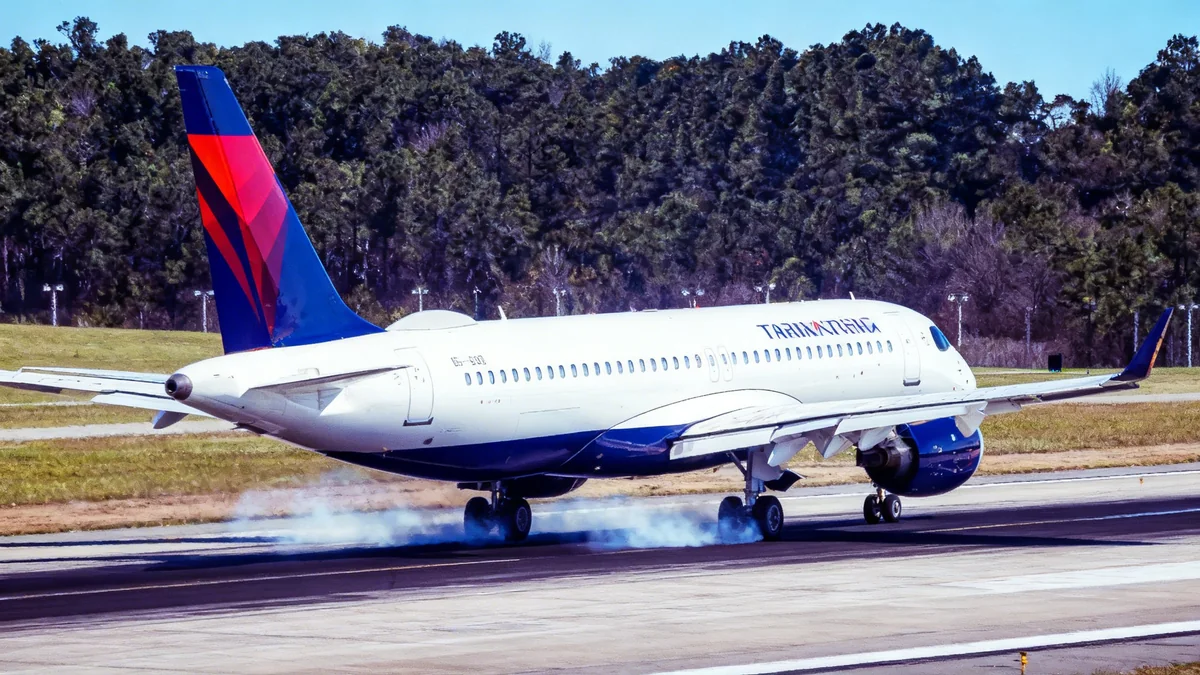Spirit Airlines is implementing significant cost-cutting measures, directly impacting its operations at the Atlanta hub. These changes will result in hundreds of flight attendants facing job uncertainty as the busy holiday travel season approaches.
Key Takeaways
- Spirit Airlines is reducing flights, particularly from its Atlanta hub.
- This action will affect hundreds of flight attendants.
- The changes come before the critical holiday travel period.
- The airline aims to cut costs amid financial pressures.
Spirit Airlines Adjusts Operations in Atlanta
Spirit Airlines has announced a reduction in its flight schedule, a move that is significantly altering its presence at Hartsfield-Jackson Atlanta International Airport (ATL). This strategic adjustment is part of a broader effort by the airline to manage operational costs and adapt to current market conditions.
The decision to scale back flights is expected to have a direct impact on the airline's workforce. Specifically, a large number of flight attendants based in Atlanta are now facing potential job disruptions. The airline has not specified the exact number of affected employees but has indicated it is in the hundreds.
Fact: Airline Hubs
An airline hub is a central airport used by an airline to funnel passenger traffic to its various destinations. This strategy allows airlines to serve more cities with fewer direct routes, optimizing connections and increasing efficiency.
Impact on Flight Attendants and Holiday Travel
The timing of these operational changes is particularly noteworthy. They are being implemented just before the peak holiday travel season, a period when airlines typically see increased passenger demand and often boost staffing.
"These adjustments are necessary to ensure our long-term financial stability," a Spirit Airlines representative stated, emphasizing the company's commitment to efficiency.
For the affected flight attendants, this means navigating career uncertainty during a time usually associated with high demand and stable work. The airline has indicated it is exploring options for these employees, which could include reassignments or voluntary separation programs, but details remain limited.
Coping with Industry Shifts
The aviation industry is known for its dynamic nature, often experiencing rapid shifts due to economic factors, fuel prices, and passenger demand. Airlines frequently adjust their schedules and staffing levels to remain competitive and financially viable.
According to industry analysts, airlines often face pressure to optimize routes and reduce expenses during periods of economic uncertainty or when facing increased competition. These measures can include fleet adjustments, route cancellations, and staffing reductions.
Aviation Industry Trends
The airline sector has experienced significant volatility in recent years, from the global travel downturn to a resurgence in demand. Airlines are constantly re-evaluating their strategies to manage costs, enhance profitability, and maintain operational flexibility.
Strategic Decisions for Spirit Airlines
Spirit Airlines, known for its ultra-low-cost model, has been particularly sensitive to economic fluctuations. Its business strategy relies on maximizing efficiency and minimizing overhead to offer competitive fares.
The current flight reductions are part of a broader strategy to streamline operations. This includes a review of less profitable routes and a focus on routes with higher demand and better financial returns. The Atlanta hub, while important, is part of this overall evaluation.
- Route Optimization: Spirit is likely assessing which routes are performing below expectations.
- Cost Control: Reducing flights helps cut fuel, maintenance, and crew costs.
- Market Adaptation: The airline is responding to changes in passenger booking patterns and competitive pressures.
Looking Ahead for Atlanta Operations
The changes at the Atlanta hub represent a strategic realignment rather than a complete withdrawal. Spirit Airlines will continue to operate from Atlanta, but with a modified schedule. This allows the airline to maintain a presence in one of the busiest airports globally while adjusting its capacity.
The long-term effects on the Atlanta market and its travelers will depend on how other airlines respond to Spirit's reduced capacity. It could lead to shifts in pricing or route availability for passengers traveling to and from Atlanta.
Implications for the Workforce
For the flight attendants, the immediate concern is job security. Unions representing airline staff often engage in negotiations with management during such periods to secure the best possible outcomes for their members.
Employee support programs, retraining opportunities, and severance packages are common topics discussed during these transitions. The airline's ability to manage this transition smoothly will be critical for employee morale and public perception.
Statistics on Airline Employment
The U.S. Bureau of Labor Statistics reported that in May 2022, there were approximately 105,800 flight attendants employed in the United States, highlighting the significant number of individuals working in this sector.
The situation at Spirit Airlines' Atlanta hub underscores the ongoing challenges within the aviation industry, where companies must balance operational efficiency with employee welfare, especially during periods of strategic restructuring.





